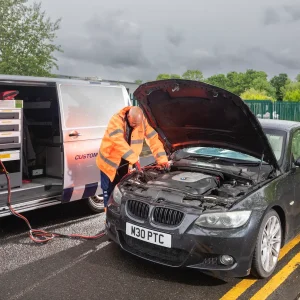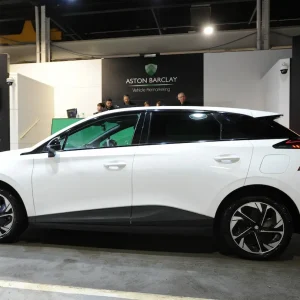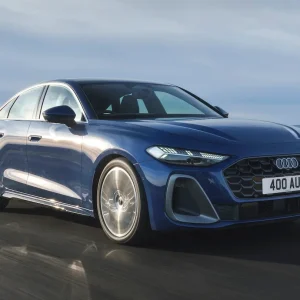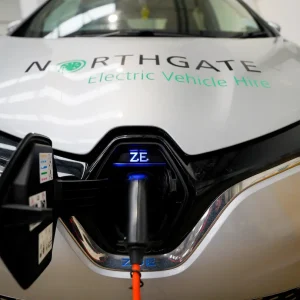Tracker was highly commended in the BusinessCar Techies. Paul Barker speaks to Clive Girling to find out how a return to the front of the corporate arena with Tracker Fleet has shaped the company.
“We have a room full of technical engineers looking for innovations, and in the last six or seven years we’ve had 10 patents pending on a new technology. Some won’t go anywhere and some could change the world,” says Clive Girling, Tracker’s marketing and technology director, outlining how important technology is to the firm, which picked up Highly Commended acclaim for its Tracker Fleet system in the 2012 BusinessCar Fleet Technology Awards, known as the Techies.
“Technical innovation is very important. If you look back 20 years to when Tracker began, it came out of technology – the technical solution at that point was stolen vehicle recovery,” he says. “We continue to innovate in that market a lot. At its heart Tracker is a technology company and wraps customer service around that.”
Having launched its Tracker Fleet product onto the market late last year as part of a bid to grow its share of corporate business, Girling explains one of the ways in which the firm attracts new business: “It comes back to taking technology and proving it adds value. We’re very good at developing innovative technology and widgets. Most are still sat on the shelf and 90% will never see the light of day, but the real trick is to spot things that make a real return on investment for the end user.”
Tracker has developers constantly working on new ideas. “Some things we’ll dust off from five years ago when the market wasn’t ready. It’s the advantage of being a core developer – you have the ability to mix old and new,” he says.
Girling says Tracker is “a little unusual” in that it covers all levels of the tracking business in-house, from software development to the installation and customer service. “You have control of the whole process. It does make a difference to how the package feels to the end user,” he says.
Emphasising the point that the firm prides itself on “technical innovation and improvement”, Girling highlights the recent development of the Transient Voltage Detection system that records vehicle idling time via sensing the electrical noise generated when an engine is running. As well as being accurate, it saves having to connect a third wire to the ignition switch, which Girling claims saves time on the installation. “The hardest thing is getting the hardware into a vehicle.
It takes time and effort to get to the customer and take the vehicle off the road,” he says. “It takes 20 minutes less time [with TVD] as you don’t have to find the ignition wire – it’s a secondary benefit but important.”
Tracker’s marketing and technology boss claims he’s seen a shift in the mentality of the market in the past year or so. “When you look at where the market is compared to 12 months ago when we launched Tracker Fleet, there is some sense of stability coming into the marketplace,” he observes. “It’s been driven for a lot of years on a commodity basis. People kind of get vehicle tracking and think it will be useful, but would buy as cheaply as possible – how cheaply will it be installed and the cost of airtime and service package.” In the past year, he says that has shifted more towards “delivering value as people now get vehicle tracking, and it’s curved at a price point where people feel right”.
The telematics market is heading down two distinct paths at present, according to Tracker, with driver behaviour and vehicle performance both of interest.
“We’ve got engineers and software developers working on some interesting stuff,” Girling reveals. “The speed of development and technical change has not reduced. As a proportion of revenue, Tracker is spending more money on research and development than ever before. I don’t see that changing and there’s some really good stuff to come out.”
“We’re certainly not writing any less business, but it’s a slightly different model,” adds Tracker product manager Robin Fellows. “It used to be about upfront cost; now it’s a lower or no upfront fee with slightly higher monthly subscription because not having the upfront cost makes it a lot more palatable.”
Insuring a future
Tracker is working with insurance firm Direct Line Group in a development that could reshape the company if it takes off.
If insurance companies start increasing the use of tracking technology in premium-holders’ vehicles, Tracker marketing and technology manager Clive Girling feels it could be a game-changer. “It’s small at the moment but it could, if it takes off, swing round very quickly,” he says. “A big fleet deal is in the hundreds, but insurance and telematics – you’re suddenly talking about hundreds of thousands of vehicles and things change then.
“It could be huge. If one of the major insurers decides telematics needs to
be in every vehicle, it’s a huge step-change, driving innovation in the product as well as more widespread and rapid installation into vehicles.”
Will smartphones be a smart choice?
Smartphones are opening up two interesting avenues for Tracker, in both the recording and viewing of its data. “It feels like we should see that as the next area of development,” says Tracker marketing and technology manager Clive Girling. “Everyone has a smartphone, but there are issues with using them.”
“A smartphone as a window to the data set is not going to go away and will be more and more likely across iPhone, iPad and laptop,” he continues. “As a technological developer we’ve had to learn a whole batch of new skills – 10 years ago everyone had a PC with a 10x12in screen, but now screen sizes are different.
“We’ve got our people now spending time doing stuff they weren’t two years ago, when it was just content not delivery,” he reveals. “Now half our time is spent on how to deliver, and when it’s done well it’s beautiful. When it’s right it’s seamless and works; when it’s wrong it’s horrible, so as software develops it’s changed our focus and will continue to.”
Girling is less sure about the use of smartphones as data collection devices. “There are issues about powering, security and end-user control of device,” says Girling, with individuals able to leave the phone at home to avoid being tracked.
“You can absolutely use an iPhone today as a quite sophisticated black box – track location, times, acceleration etc, but it’s all meaningless if you’ve ‘left your iPhone at home’,” Girling concluded. “I don’t think this has shaken out at all about whether iPhones could ever be a valid data collection device, but suffice to say we’re spending a lot of time working on it to find out if they are.”





